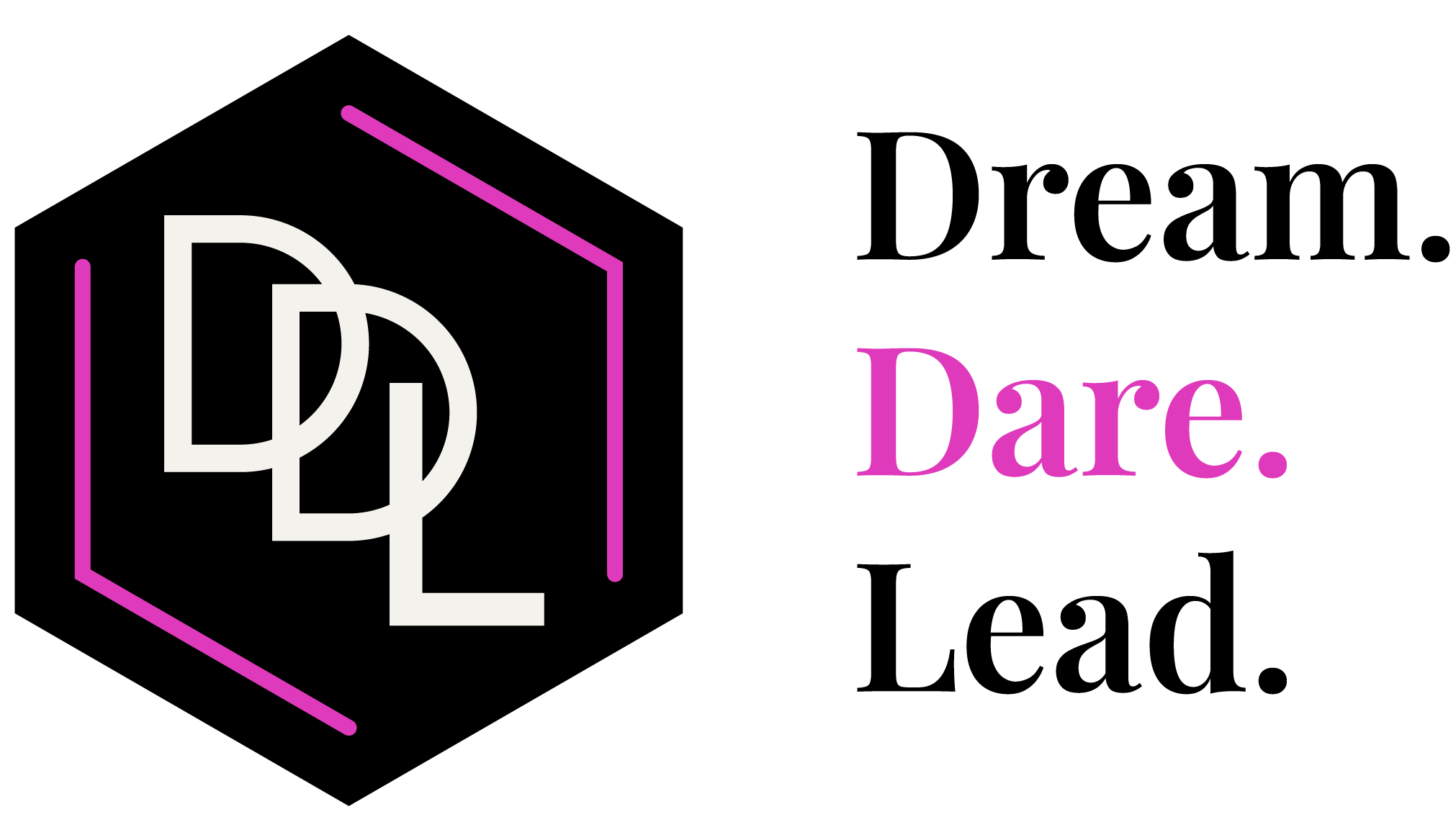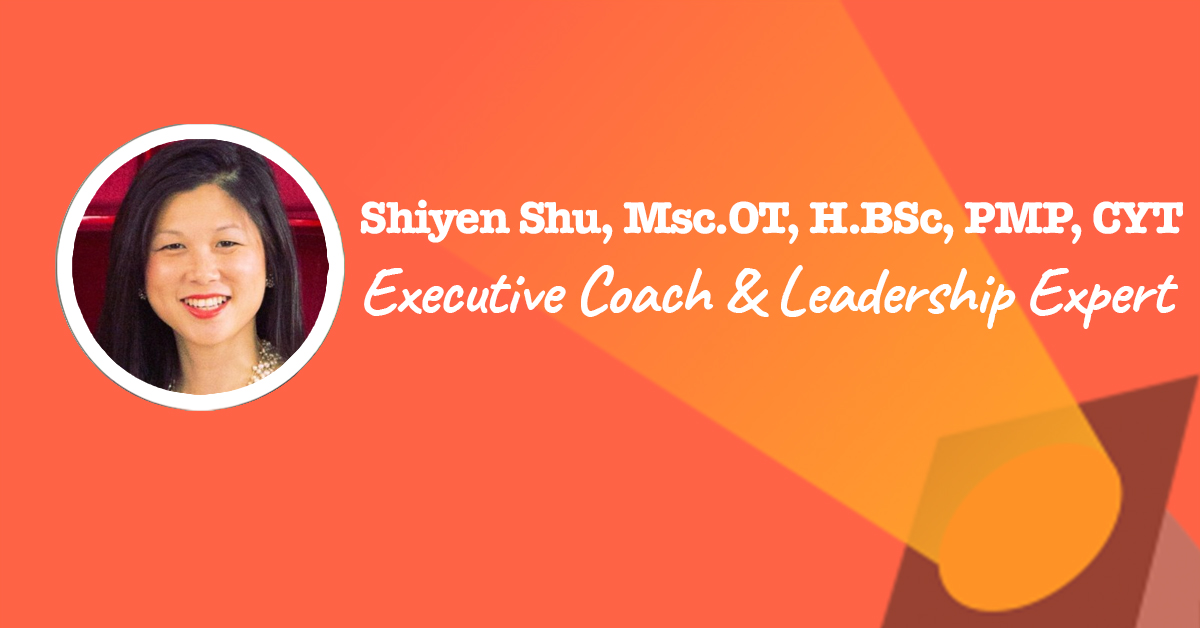This week’s non-clinical spotlight features Shiyen Shu, an occupational therapist who works as an executive coach and leadership expert.
This post may contain affiliate links or codes. This won’t increase your cost, but it helps keep TNCPT alive, and free of annoying ads! Thank you for your support. 🙂
What is your full name and title at your current job?
Shiyen Shu, Msc.OT, H.BSc, PMP, CYT
Executive Coach & Leadership Expert, Owner of Dream. Dare. Lead.

Where are you located?
Mississauga, Canada.
Where did you go to OT school, and what year did you graduate?
University of Toronto, 2010.
What did you do when you first finished school, and for how long?
My last fieldwork placement was in the insurance sector, so I had two offers in the same sector. My first job out of school was working with individuals who sustained motor vehicle accidents—anything from whiplash or fractures, to fibromyalgia and traumatic brain injuries.
What did you do after that, and for how long?
I then started working with a not-for-profit home and community care organization providing occupational therapy services to individuals living in the community.
While I enjoyed providing care in the community, I jumped on another opportunity to start providing care in one of Toronto’s top hospitals, Toronto General Hospital, which is part of the University Health Network.
What did you enjoy about your early roles? What didn’t you enjoy?
I enjoyed the variety and constant learning that my early roles offered.
At times, it did feel lonely being out in the community, and I always felt like school didn’t prepare you for the actual jobs. You had to really take the initiative to learn and practice to gain true experience.
Can you tell us a bit about your move into the non-clinical world?
I wanted to do more work at the system level, so I went on to do case management for complex patients.
Then, I moved into project management and organizational development.
I initially moved into a care coordination/case management role. I really enjoyed this role at first, and then started looking for my next challenge, and that’s when I moved into organizational development (OD). In my OD role, I was doing a lot of training and leadership development, coaching, project management, and change management that impacted clinical care.
That sounds near impossible for some readers. How did you make these transitions so seamlessly?
I did tell my manager about my goals to progress, but there were very few—if any—opportunities.
So, I would keep my eye out so I could carve my own path. The move to care coordination happened after I worked closely with a care coordinator at the hospital where I was an OT. She actually passed my resume along to her manager, who sent it to HR.
How did you land your role in organizational development?
For the organizational development role, I applied for an internal job posting and was lucky to be selected for the role amongst a lot of applicants.
Toronto is pretty competitive, and in general, there are limited opportunities for frontline clinicians—especially allied health professionals—to progress into more senior roles.
Why did you decide to go non-clinical?
After roughly 2.5 years of direct clinical experience, I wasn’t feeling energized going to work, so I started looking for a new challenge and a way to create a bigger impact.
What is your role as an executive coach and leadership expert?
These days, I work with driven and ambitious executives and professionals who want to become even better leaders. I help them achieve greater levels of success in their current role, or as they seek more senior roles. We use a unique coaching methodology that is guaranteed to ensure they meet their goals, along with a holistic approach that addresses the whole person. The process often includes an in-depth behavioural interview style 360 assessment, and a leadership assessment such as the Hogan assessment, which will provide the leader with an overview of their strengths, their derailers, and their motivations to increase self-awareness.
When it comes to leadership development, we are often working on behaviour changes. The result is an improvement in the selected leadership development behaviour, along with an associated positive change in perception by their team for an overall win-win situation.
Some of the most worked-on leadership behaviours include:
- Building trust
- Empowering others by delegating more effectively
- Taking appropriate risks
- Building stronger cross-functional relationships
- Building executive presence and confidence
- Becoming more decisive
- Addressing conflict constructively and timely
- Listening to different points of view with an open mind before giving my opinion
- Developing and linking team strategy to business strategy
- Improving communications
- Staying calm and focused on the most important issues
In addition to the above work, we deliver workshops. Some of the workshops we’ve successfully delivered have included:
- Executive Presence: The “It” factor
- Time Management: Own your time
- Goal setting for Success
- Unleash your inner confidence: embracing self-doubt and befriending your imposter
- Slow down to speed up: leveraging neuroscience and mindfulness for leaders
Did you get any special certifications or training along the way to help you get into your current role?
Yes, a whole bunch of certifications in executive coaching, leadership, CBT, project management, yoga and meditation, etc.
When did you start your executive coaching business?
2020
Where did you get the idea for your business?
I saw a huge need that I could help with, and decided to start it on the side, along with my full-time role.
What is your business, and what types of products or services do you offer?
My business aims to help successful people achieve positive, lasting change in behaviour for themselves, their people and their teams. Some of the services we provide include:
Executive Coaching: We offer coaching services for the C-suite and senior leadership team to help them become more successful leaders.
Career Coaching: We also offer support for professionals seeking to gain clarity in their career, help them through the process of landing better jobs, and also progress into senior roles.
Assessments: We offer assessments and coaching to help individuals understand themselves better.
Workshops: We offer leadership development and strategy facilitation workshops as well as customized workshops to meet the needs of the client and organization
How have people reacted to you leaving patient care?
Initially, a lot of therapists didn’t quite understand why I wanted to leave, however they are very supportive and proud of my journey now.
What’s a typical day or week in the life like for you as an executive coach?
In a typical week, I may have coaching sessions with clients, workshops/speaking engagements, business development, and interviews.
What are some of the challenges of your role? What are the rewards?
Being an entrepreneur has its own set of challenges, in terms of the lack of a steady paycheck and benefits in the beginning.
Time is our most precious resource, and it’s even more important when you are running your own business or in a leadership role, as your work impacts so many others.
However, the rewards are far greater and I’ve been very fortunate in this journey so far.
How do you think working as an OT prepared you for this role? Which skills transferred?
My work as an OT has been very helpful. I have a great understanding of frontline care as well as a systems perspective. An OT helps people live their best lives, and we did a lot of coaching for our patients, so unknowingly I’m pretty sure that set me up for years of practice to where I am today.
What type of person do you think would do well in your role?
You would have to be a self-starter and motivated person to be able to do well in this role, and have a genuine passion and desire to help people change.
Do you work remotely or on-site?
Most of my work is remote at this time.
Does your organization hire PT, OT, or SLP professionals into non-clinical roles? If so, what type of roles?
Not yet, but thinking about it.
Did you read any books, take any courses, or do anything special overall to get you where you are today?
I consider myself a lifelong learner, so I’ve been on a mission to read as many books and take as many courses as possible. However, my suggestion would be to implement the knowledge rather than accumulate it. Some book suggestions:
- Mindset by Carol Dweck
- Man’s Search for Meaning by Viktor Frankl
- What Got You Here Won’t Get You There by Marshall Goldsmith
What is a typical career path for someone in your role?
They may work independently, or join a bigger coaching company. They can also be hired directly by an organization as an employee.
What is next for you? What do you want to do with your career long-term?
I’m keen on growing my team and continuing to do the work we are doing, to transform healthcare leadership and many other sectors in a positive way.
What would you recommend to someone who is considering going into a role like yours?
Relationships are everything—build and nurture your network
What would you like to change most in your profession, and why? How would you propose doing so?
There’s still some stigma associated with coaching, where people think coaching is for compliance and performance.
I’d like people to change this perspective as coaching can truly enhance a person and organization’s success. Every single elite athlete has a coach—what makes this different in the game of work and life?
If you could give yourself one piece of career advice you wish you had during OT school, what would it be?
Find mentors, hire a coach to help you pave the best way for you, and take risks early on.
If you could teach anything to today’s graduate students in your profession, what would it be?
To think outside the box, and consider ways to increase your impact. The field of therapy requires innovation to keep progressing.
Do you have any special advice for others who want to follow in your footsteps?
Understand your “why” because when it gets tough and you want to give up, you know why you started.





